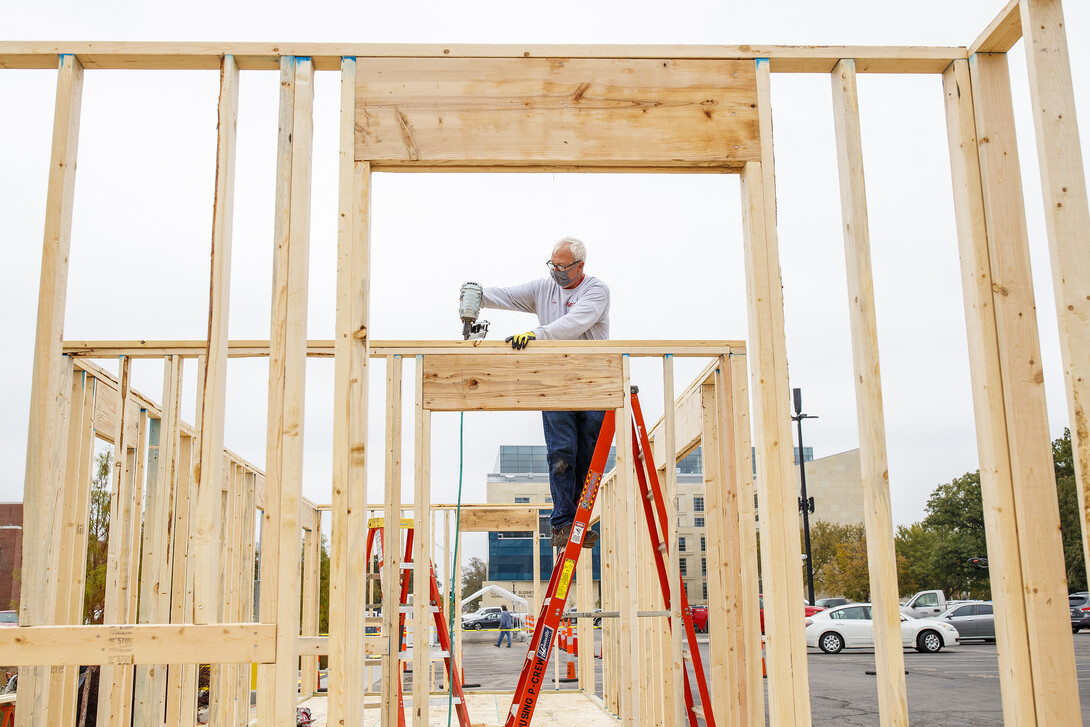
The University of Nebraska–Lincoln has received global recognition for its innovative facilities work on campus.
On Oct. 28, Nebraska was named 2020’s Most Intelligent Higher Education Campus by Realcomm, an international commercial and corporate real estate company with a focus on technology and automation.
Realcomm credits the university with seamlessly and effectively executing a COVID-19 response to promote a safe return to campus, consistently bringing extraordinary innovation and forward thinking to campus operations, and implementing cost-effective and tech-enabled state-of-the-art hybrid classrooms.
Other finalists for the award included Georgia Tech and Notre Dame.
“It is a tremendous honor for the university to receive this award, especially in a year where our facilities team has had to get creative to meet the demands of the pandemic,” said Lalit Agarwal, director of maintenance and utility services.
For decades, Nebraska has set itself apart in the higher education world by creating its own building automation systems from scratch.
“Most higher education institutions, when they need building automation solutions, go to big vendors like Delta Controls, Siemens, Honeywell Controls and Johnson Controls and buy the hardware and software from them to install on their campus,” Agarwal said. “We are unique in that we have been developing our own building automation systems since the early ’80s. We design, manufacture and install smart HVAC controllers ourselves. We also develop our own software. So, from top to bottom, there is absolutely nobody else in the country or the world that has done that.”
While the process requires more work up front, it has greatly increased the efficiency of facilities efforts over the years.
“When a technician goes out in the middle of the night at 2 a.m. to respond to a trouble call, they know exactly what they’re going to find when they open the cabinet, and they are very familiar with the single system. They don’t have to worry about learning 10 different systems on our campus,” Agarwal said. “It’s very innovative, and I think that’s one of the biggest reasons we got the award.”
Creating their own systems has allowed Agarwal and his team to get a clearer picture of what needs fixed, saving money and time in the long run.
“We are also on the leading edge of using analytics and information derived from the building automation systems to manage our operations,” Agarwal said. “For example, we used to perform scheduled maintenance on our motors and pumps every six months, because that’s what the equipment manufacturer told us. What we realized was, we don’t run our motors all day and all night — we turn them off at night in many campus buildings. So, we developed software integrations between multiple systems, where the building automation system is pushing equipment run-hour data into our work order management system.
“When the run hours reach manufacturer recommended thresholds, a work ticket is automatically generated and assigned to the appropriate maintenance team. On average, we’re now performing maintenance on equipment that need a six-month cycle on a 10-and-a-half-month cycle instead. That’s reducing our labor and the materials we use, and we also are not over-maintaining some equipment. Some equipment is actually susceptible to failure faster if you over-maintain it.”
Innovation from the facilities and operations teams has also played a key role in Nebraska’s COVID-19 response. Since last summer, staff have worked to update HVAC systems, create large-scale hand sanitizer stations, construct testing “pods,” map out classrooms for social distancing and more.
“This is all made possible by the support of university senior leadership, who view our team as experts and provide us with the resources we need to be successful,” Agarwal said. “That trust has been crucial to our innovation over the years, and it is one of the reasons why we’ve been able to create a safe experience for students as they returned to campus this fall.”







